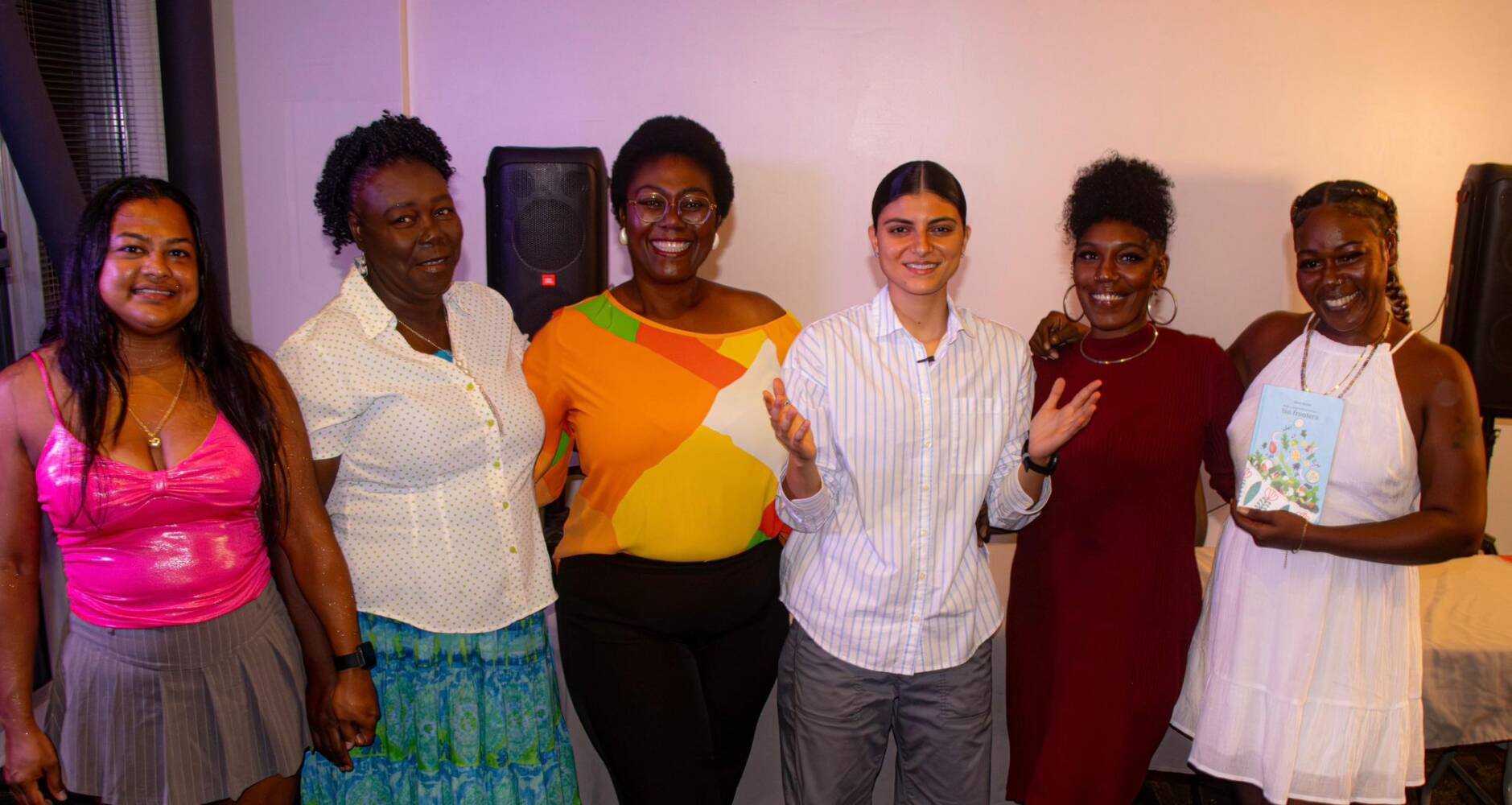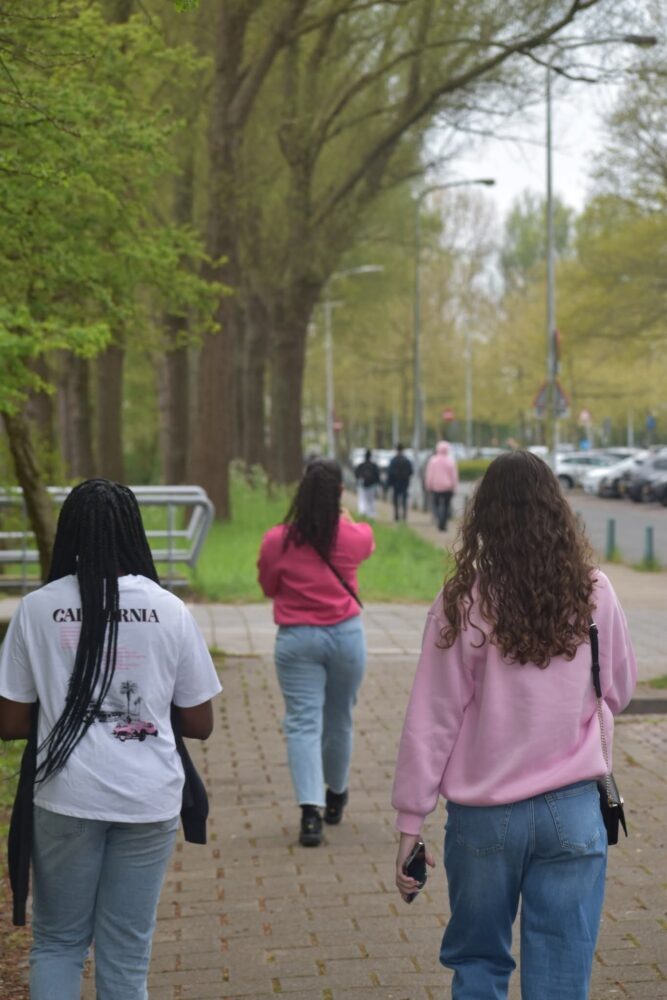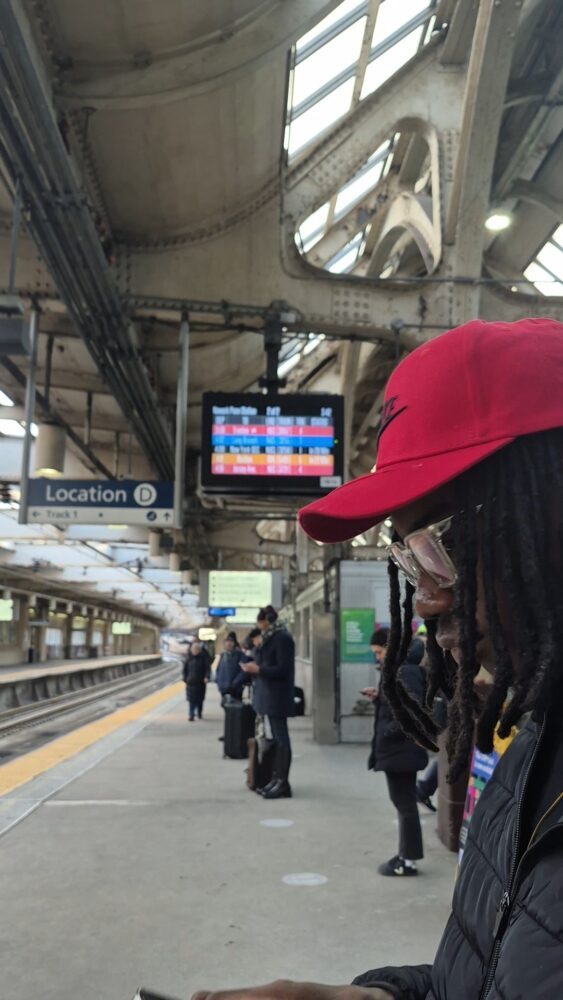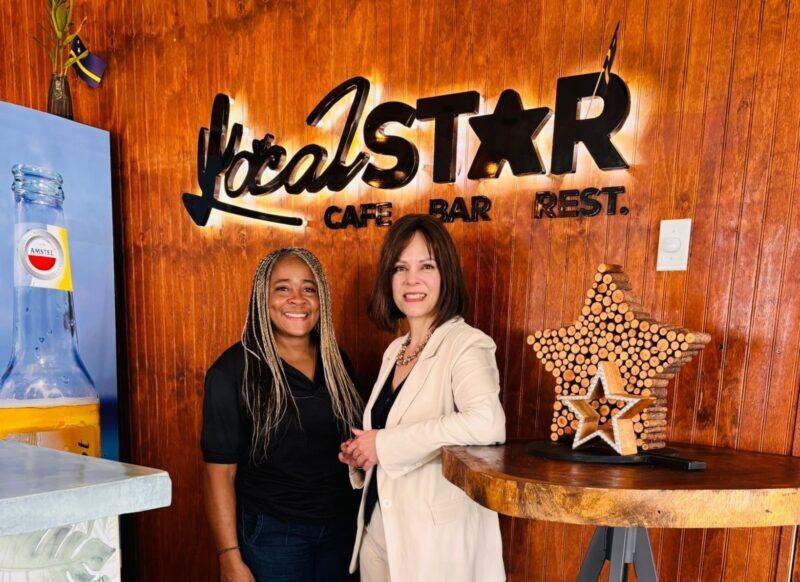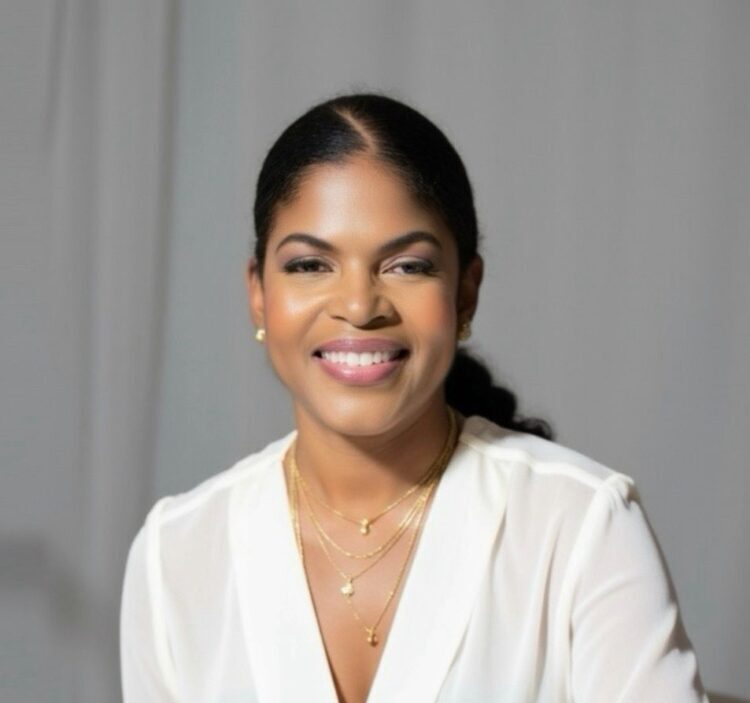“Curaçao has given my children peace, it has brought us headaches, sunshine, and sometimes also storms. Curaçao is our trunk. Sometimes it opens and we see the sun. Sometimes it closes and we must find a way to survive in the dark.” These are the words of a mother from Jamaica, written down by poet and project leader Aline Abdul (21) for the project Mama Baranka (mothers of rock). In it, six migrant mothers from Haiti, the Dominican Republic, Jamaica, and Colombia shared their experiences in literary sessions.
The project is an initiative of Wintertuin Curaçao, part of the literary organization Wintertuin in the Netherlands. The platform focuses on strengthening literature and stories in the Caribbean and wants to create more awareness for migrant literature and the role of migrants in Curaçaoan society. Abdul was asked to lead the project because of her own background. She was born in Lebanon, grew up in Curaçao, and has experienced how hard it can be to feel fully accepted. “Even if you adjust and integrate, you often keep that label of foreigner,” she says. “Sometimes that carries painful experiences.”
Mothers of Stone
Abdul led the meetings and turned the stories into prose and poetry. “There were ten sessions where we talked about everything that affects their daily lives,” she says. “Clashing norms and values, social pressure, raising children, looking for work, but also the enormous mental strength these women have. They keep using that word themselves: ‘Kòrsou ta pidi forsa’ (Curaçao asks for strength).”
Thankfulness and Pain
The mothers talked about their thankfulness that their children can grow up in freedom. At the same time, there is pain. One mother said she had to remove her home country from her resume to have a chance at getting a job. “You sometimes have to literally erase your identity to get in somewhere,” Abdul says. “That affects your feeling of self-worth a lot.”
Why It Does Work Here
Curaçao is home to more than fifty cultures that live together peacefully mostly, on a small island. While migration in the Netherlands often leads to political tensions, in Curaçao it remains predominantly a social question, Abdul explains. “Here, you rarely hear political parties shouting that fewer migrants should come. Of course, there are prejudices or rejections, but it is not played out politically. That makes the experience different.”
Literature as a Quiet Rebellion
For Abdul, literature is the most powerful way to make these stories visible. “I call it a quiet rebellion. You can shout in the streets, but with literature, you record your experience forever. It is preserved, in words and in images.”
Besides the poems, there will also be a documentary. During the recordings, the women read their own stories, often in Papiamentu, sometimes in English or Spanish. “The most important thing was that they themselves took the floor,” says Abdul.
Nos tambe ta Kòrsou
The Mama Baranka show that motherhood and migration are inseparably connected to the island. Their stories make it clear: Curaçao does not only belong to those who were born here.
Or, as the women sum it up themselves: “Nos tambe ta yu di e tera‘ki. Nos tambe ta Kòrsou (We too are children of this land. We too are Curaçao).”
Poem by Aline Abdul, based on the story of a mother from Jamaica.
English
‘Curaçao has given my children peace, it has brought us headaches, sunshine, and sometimes also storms. Curaçao is our trunk. Sometimes it opens and we see the sun. Sometimes it closes and we must find a way to survive in the dark.
Like I said: the fighter in me has won many wars through her discipline, through the will to move forward. That is a value I have tried to pass on to my children. But they don’t have to fight so much anymore. That is a good thing, but it is not good for their discipline skills.’
Poem by Aline Abdul from her poetry book: Sin Frontera (‘Without Borders’). This book, published by Wintertuin, was awarded the UNESCO Curaçao Prize for the Mother Tongue Papiamentu 2024 on February 21, 2024.
I Am Curaçao Too
I am a cedar tree,
Mediterranean roots,
surrounded by cactuses in
Creole ground
You see my trunk
as an immigrant,
you label my branches
as foreign
If only you knew that
the song of my leaves sounds in
the language of your ancestors,
that the Caribbean Sea soaks my body
standing in thorny ground
If only you would see and
realize that I too,
simply,
am native.
Mi tambe ta Kòrsou
Mi t’un palu di seder
rais mediteráneo
rondoná di kadushi
riba tereno krioyo
A pinta mi tronkon
koló di inmigrante
stampia mi ramanan
ku stèmpel djafó
Mare nan ke sa
ku mi blachinan
ta kanta na lenga di nan avochi
ku mi kurpa den tera di sumpiña
tin Laman Karibe ta aliment’é
Mare nan ke mira i komprondé
ku, sin kita sin pone,
mi tambe ta
yu di nan tera.
(Poem translated into Papiamentu by Jeroen Heuvel)




